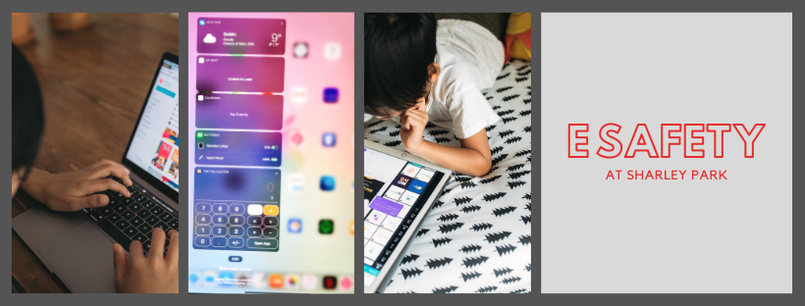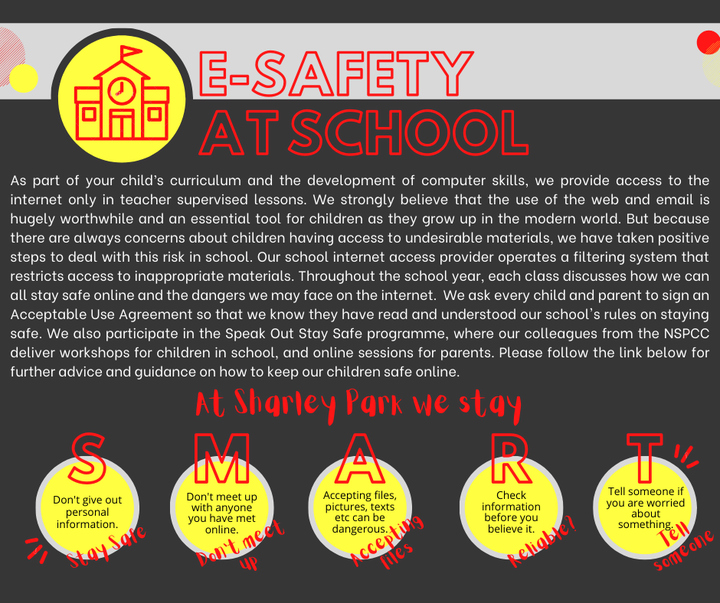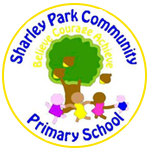E-Safety

E-Safety is an integral part of children's education in today's digital world and is embedded in their learning at school. We also want to help our parents and children improve their own understanding of e-safety issues so they can learn to use the internet and all digital media in a safe and secure way.
It is important to remember that the legal age to have an account on most social media platforms e.g. Instagram, Facebook, Youtube, Snapchat is 13 years old.
E-Safety at Home
As a parent, you'll know how important the internet is to children - they use it to learn, play, socialise and express themselves. It's a highly creative place of amazing opportunities, but the technology children use every day can seem a bit daunting, and you might worry about the risks your child can face online - such as bullying, contact from strangers, or the possibility of them seeing illegal or inappropriate content. You can download a simple check list below that may help you start to protect your children online and decrease the risks that they face. You can engage with your children regarding their use of the internet whilst at home:
- Ask your children to tell you about the site they like to visit and what they enjoy doing online.
- Ask them about how to stay safe online. What tips do they have for you, and where did they learn them? What is Ok and not ok to share?
- Ask the, if they know where to go for help, where to find the safety advice, privacy setting, and how to report or block on the apps they are using
- Encourage them to help you. Perhaps they can show you how to do something better online ir they might have a friend who would benefit from their help and support.
- Think abut how you use the internet as a family. What could you do to get more out of the internet together and further enjoy your lives online.
Below are the National College online safety tip sheets for parents. We have included the ones which we feel will be most useful to support at home.
"Nothing ever goes away, once it's posted online"


